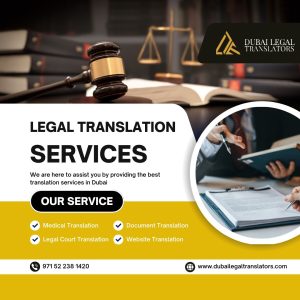Translate Legal Documents: Essential Steps for Accuracy and Compliance
Legal document translation is essential for businesses, legal firms, and individuals operating in multilingual environments. The demand for high-quality translations of contracts, agreements, and other legal documents is growing rapidly. Accuracy, confidentiality, and cultural awareness are key to successful legal translations, ensuring that your content maintains the same meaning and tone across languages. Here, we will discuss why and how to translate legal documents for maximum compliance and reliability.
Why Translate Legal Documents?
Translating legal documents bridges language gaps in various sectors, such as international law, corporate agreements, and immigration. Without accurate translations, misunderstandings can occur, leading to disputes or potential legal risks. In areas like immigration, a clear and certified translation can make the difference between success and rejection.
Legal document translation also supports business expansion. Companies entering new markets must comply with local laws, often requiring translation of legal materials, such as employee contracts and service agreements. Ensuring these documents are correctly translated fosters trust and compliance with local regulations, paving the way for smoother business operations.
The Process to Translate Legal Documents
- Select a Professional Translator
Working with a qualified legal translator is vital. Legal translation involves complex terminology that only an experienced professional can handle accurately. Qualified translators understand legal jargon and can interpret it accurately in both languages. They also maintain confidentiality, ensuring that sensitive information remains secure. - Choose Certified Translation Services
Certified translation services guarantee accuracy and reliability. Certification verifies that the translation is true to the original document, providing assurance for official and legal purposes. It’s particularly valuable when presenting documents in court or for government processes. Certified translations are widely recognized and accepted across international jurisdictions. - Emphasize Cultural Context
Legal terminology varies between languages and cultures. Legal translators consider cultural and linguistic nuances to ensure that translated content is accurate and culturally appropriate. For instance, certain legal concepts might not have direct equivalents in another language. A skilled translator will interpret these differences to retain the document’s original intent and meaning.
Key Qualities of a Trusted Legal Translation Service
Legal translation services should offer more than just language expertise. Here are some qualities to look for:
- Accuracy and Attention to Detail
High-quality legal translations maintain exactness and accuracy. Look for services that focus on precision and have a strong reputation for delivering flawless translations. This ensures that your document’s legal integrity is never compromised. - Strict Confidentiality
Confidentiality is crucial in legal matters. Reputable translation services prioritize data security, protecting sensitive information from unauthorized access. Only translators with a legal background should handle documents to maintain confidentiality. - Understanding of Legal Systems
Reliable translation services understand legal systems in both the source and target languages. This knowledge helps translators convey legal concepts correctly, reducing the risk of misinterpretation. When you translate legal documents, these professionals align the text with local legal standards, ensuring that it meets regulatory requirements.

Benefits of Choosing the Right Legal Document Translation Service
Choosing a trusted translation service offers several advantages. First, you gain peace of mind, knowing your documents are in capable hands. Second, accurate translations help you avoid costly mistakes, such as contract misinterpretations that could lead to legal disputes. Additionally, professional translations speed up processes, helping businesses and individuals achieve their goals more efficiently.
Conclusion
To translate legal documents effectively, choose a reputable service with certified translators who understand legal systems and maintain strict confidentiality. This approach minimizes risks and ensures your documents retain their intended meaning. Reliable legal translation services provide accuracy, cultural awareness, and security, helping you navigate complex legal landscapes confidently. For broader insights into the importance of document accuracy, check out the International Federation of Translators and Dubai Legal Translators, known for their expertise in legal translations.
